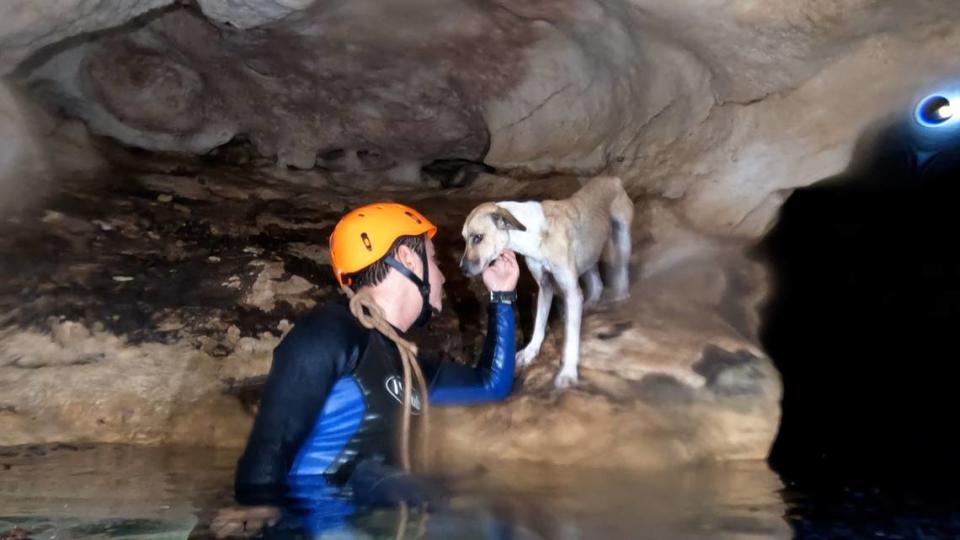Divers willing to go ‘Whenever, Wherever’ save dog named Shakira from bat-infested cave
A dog named Shakira spent around four days stuck inside a dark, bat-infested cave in Mexico.
But then, divers orchestrated a plan to save the canine named after the “She Wolf” singer.
While leading a group of tourists through the Zabnah Cave, a popular cavern on the Yucatan Peninsula, a tour guide heard barking, according to an Aug. 28 news release from the Technical Sports Divers of Yucatan.
While the noise frightened the tourists, the guide followed the barks and soon realized they were coming from Shakira, a well-known dog who often accompanied visitors in the cave.
The female dog had somehow gotten trapped in an inaccessible section of the cave surrounded by deep water and fluttering bats.

Divers were then contacted, and, upon their arrival, they engineered a rescue operation involving a rope pulley.
Clad in bodysuits and orange helmets — and in the spirit of the hit song “Whenever, Wherever” — the divers swam into the bat-infested cave to rescue Shakira.
Upon spotting the dog, which was perched on a ledge near the water’s edge, divers noticed she was thin and shaking.
They approached with food and were able to attach a harness onto her.
Once safely strapped in, Shakira was hoisted by a rope to safety, ending a nearly 3-hour long operation.
The dog is now free to continue escorting visitors in and out of the cave, divers said.
Shakira’s story will hopefully spread awareness that everyone can do something for dogs, José Antonio Ceballos, the director of the Technical Sports Divers of Yucatan told McClatchy News in an e-mail.
Google Translate was used to translate a news release from the Technical Sports Divers of Yucatan and an email from the organization’s director.
1,800-year-old bones of a small ‘lap dog’ — a ‘much-loved pet’ — found at Roman villa
Hundreds of bees found mummified in their cocoons. They’re 3,000 years old, study says
Tiny ‘pear-shaped’ critter with craving for ants found in rainforest. See new species

